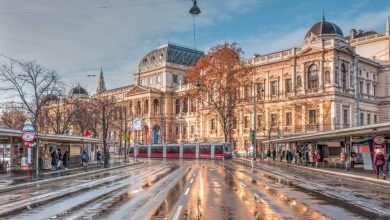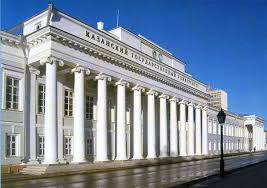How to Study Nursing in Russia

Russia is home to some of the best medical colleges and universities in the world. They are popular among applicants interested in studying medicine in Russia because of their international recognition and comparatively affordable tuition fees.
Universities offer full-time nursing programs in addition to pharmacy, dentistry, and general medicine degrees. The program’s popularity does not imply that obtaining a degree as a nurse or care worker in Russia is simple. In truth, it necessitates a significant amount of time, effort, and hard work.
Regardless, the program’s popularity prompted it to be offered by a number of universities around the world. Information on living costs, admission requirements, fees, and offered programs should all be considered while selecting the right university. This is what we’ll be talking about today.
Related Post: List of Universities in Croatia for EU and International Students
What Nursing Degrees are Available in Russia?
Apprenticeship is not enough to start a profession as a nurse in Russia. The most basic need is to finish a four-year Bachelor’s degree program. RUDN University, I.M. Sechenov First Moscow State Medical University, and Perm State Medical University all offer full-time bachelor’s degree programs.
At the moment, no Russian universities provide a postgraduate (Masters or Ph.D) nursing program.
The cost of nursing school in Russia
International students’ tuition expenses vary based on the program they choose. They cost between $3500 and $4300 every academic year on average.
The cost of living varies according to the type of dormitory and level of comfort. In a university hostel or dormitory, a student will often need $300-400 to pay for a room/apartment.
Work permits are granted to foreign students who complete full-time courses in Russia (if they have free time). Working lawfully while studying, however, necessitates specific approval. Exceptions are made only for students who obtain employment through the university’s International Office.
How to Go About Studying Nursing
In order to study nursing in Russia as an international student, you must first meet the university’s prerequisites.
Because Russian institutions only offer bachelor’s degree programs in nursing, no additional education is required to apply. However, all overseas applicants interested in studying nursing must submit a specified set of documents. The education certificate demonstrating secondary school completion is one of the documents necessary.
Because this process takes time, it’s best to start gathering the relevant documents ahead of time. International students, in particular, value their time because they must have all paperwork translated into Russian. Admissions offices frequently need notarized and/or legalized translations.
Passport, medical certificate, and Certificate of Recognition are among the other documents required for entrance. Universities may also request supplementary documentation.
Visit the RUDN and Sechenov First Moscow State Medical University pages with information on the entrance procedure to learn more about the prerequisites of Russian universities.
There are additional matters to attend to, such as the student visa application procedure and funding your studies.
What languages do you study nursing?
Russian universities solely offer bachelor’s degree programs in the Russian language. Nursing programs at both RUDN and I.M. Sechenov First Moscow State Medical University are taught in Russian.
Many medical graduate programs are available in English, French, and even Spanish. Nursing programs, on the other hand, are only taught in Russian. As a result, fluency in Russian is required. Otherwise, an overseas student will not be allowed to complete and graduate from the course.
Prospective international students who do not speak Russian can take a preparation course. Take, for example, an RUDN university course. The professors’ methods and approaches enable international students to gain proficiency in Russian in a reasonably short amount of time (10 months). Students may take the Russian Language Proficiency Test after finishing the course.
Russia’s Best Nursing Schools
We’d like to go through the best nursing schools in Russia now that you’ve read about how to study nursing in Russia. We’ve included links to each university’s curriculum, so take a look if you’re interested!
First Moscow State Medical University, I.M. Sechenov
I.M. Sechenov First Moscow State University has been conducting research and offering high-quality education in the field of medicine for almost two centuries. Scientists working in university laboratories benefit from ongoing collaboration with major organizations in the fields of IT and technology.
They conduct substantial research using cutting-edge technology and inventions. The findings of these studies are then put into effect to improve the healthcare system and form the medical system’s future vision.
The development of life-long health management approaches receives special focus. Furthermore, one of the university’s main objectives is to combat worldwide health concerns.
The teaching staff is the primary benefit of this Russian nursing school. Under the supervision of doctors and high-ranking representatives of various medical organizations, students will gain practical knowledge and build skills. The use of simulation technology and a strong focus on practice aid in the education of competent professionals working in rehabilitation organizations, medical associations, and international medical authorities.
Related Post:List of Universities in Switzerland
RUDN University is a private university in the United Kingdom.
For more than 60 years, the university has successfully educated students from various countries. RUDN is presently one of the leading institutions in terms of teaching and academic development, with over 9000 international students and over 150 cooperative educational programs.
Despite obstacles, the university remains committed to its fundamental mission. The idea is to use knowledge to bring students from various cultural backgrounds together. This cultural blending offers a number of advantages, including ongoing research and collaboration agreements with around 250 research centers throughout the world.
The Nursing Bachelor’s degree at RUDN is designed to provide students with both academic and practical expertise in a variety of areas. The full-time program is divided into modules and includes both core and elective areas. Graduates of this Russian nursing school have all of the abilities required of professional nurses after completing the 4-year program. They can begin their careers as staff nurses or administrative department assistants.
Perm State Medical University is a university in Perm, Russia.
The Perm State Medical University is the final candidate on our list of top nursing schools. The clinical psychology and higher nursing education faculty is the university’s newest addition. In fact, it was founded as a result of advancements and demands in the domains of healthcare and nursing. Despite the fact that Perm State Medical University is a new institution, it already has hundreds of graduates working in healthcare and/or education.
Since 2014, the course has only been available in a full-time arrangement. Students learn skills, acquire knowledge, and gain experience that they will need later in their professional careers during the 4-year intensive study process.
Funding for Studying in Russia.
The Russian government awards a number of university scholarships to international students each year. In 2021, 18,000 such scholarships were made available, with many of them being assigned to certain nations or subjects based on prior agreements. The scholarships are organized by Russia’s Federal Agency for Commonwealth of Independent States Affairs, Compatriots Living Abroad, and International Humanitarian Cooperation (Rossotrudnichestvo).
The government scholarship covers all tuition fees, as well as a maintenance allowance and free dormitory housing for the duration of the student’s degree program.
To apply for a scholarship, you must first complete the following steps:
- Inquire about scholarship opportunities at the Russian embassy or Rossotrudichnestvo office in your country.
- Fill out this form by choosing six universities (no more than two in each of Moscow and St. Petersburg) and stating your preference in order. You will also be required to submit documentation proving your identification, degree of education, and command of the Russian language.
- Await an invitation to participate in the selection process. Some colleges conduct interviews while others ask applicants to take an exam.
- You will be asked to produce more paperwork if you pass the selection process. This contains a medical certificate as well as educational certifications. You must notarize and translate these documents into Russian.
Student housing in Russia
When it comes to finding a place to stay in Russia, international students have a variety of possibilities. The most costly cities are Moscow and St. Petersburg, with Moscow and St. Petersburg being the most expensive. Moscow, in example, is consistently ranked among the world’s top ten most expensive places to live in. Having said that, you should be able to locate something to suit your budget.
Dormitories for students
Most Russian colleges have dormitory housing, which is where the majority of international students initially choose to stay. Depending on the university, a dormitory is usually the most cheap alternative, with fees ranging from $500 to $5,000 per month.
Dormitory rooms are often shared by two to four students, giving you plenty of opportunities to get to know your roommates. Living on campus can also provide additional advantages, such as easy access to classes and other university amenities. If privacy is particularly important to you, though, you might want to investigate one of the other options.
Staying at home
Many Russian families, especially in the larger cities, rent out spare rooms in their homes. International students frequently use this opportunity to meet new people and practice their English.
Although a room is normally more expensive than a dorm room, prices can vary by city. A month’s rent in Moscow, for example, will likely cost between $15,000 and $20,000. A comparable accommodation in Novosibirsk, a big city in its own right, would cost around half as much.
Accommodation in a private home
Alternatively, you might like to find your own apartment. Of course, this is the most expensive alternative. A one-room apartment in Moscow can set you back between 30,000 and 35,000 rubles per month. However, your mileage may vary depending on your closeness to the city core. Prices will be lower elsewhere in Russia once again.
Work and Study
While studying in Russia, some students may wish to work to supplement their income. However, while your student visa allows you to work part-time for your university, you will need to obtain a work permit for any other occupations. This is one of the reasons why many international students opt to work at their institutions as native language assistants.
Student Health Care
Foreign nationals are only eligible for free first aid and emergency medical treatments, despite the fact that Russia has a comprehensive state healthcare plan for its inhabitants. As a result, when you arrive in the nation, you must obtain a Voluntary Health Insurance Policy (VHI). To give you an idea of pricing, international students in Moscow could get a VHI for between 4,000 and 12,000 dollars in 2020.
Student life
In Russia, the academic year spans from September to June. Each year, there are two terms, with a winter break around the New Year. Exams are usually held in January and June.
Your institution will issue you with a student ID card that grants you access to a variety of perks during your time in Russia. A considerable savings on public transportation fares is one such perk. For example, in Moscow, you will be able to acquire a discounted monthly unlimited pass for use on the Metro, buses, and trams for $405.
Your student ID will also get you discounts at a variety of stores, as well as lower (or even free) admission to many of Russia’s world-famous cultural landmarks, such as St. Petersburg’s State Hermitage Museum and Moscow’s magnificent State Tretyakov Gallery.
In Russia, the cost of living is quite high.
To figure out how much money you’ll need to study in Russia, you’ll need to first learn about the overall cost of living in the country. Naturally, the cost of living varies depending on where you live, with Moscow and St. Petersburg being the most costly cities in Russia. A lunch in a modest Moscow restaurant will cost around 500 rubles, rising to around 1,500 rubles in a mid-range restaurant. Meanwhile, grocery bills are anticipated to range from $10,000 to $13,000 per month.
Post University Life
If you want to work in Russia after graduation, you’ll need to apply for a work visa. To obtain one, you must first obtain an offer of work from a Russian company. This will result in you receiving a letter of invitation, which you must submit with your visa application. Your visa will thereafter be conditional on your continuing to work for that company. You will need to leave Russia and reapply with a fresh letter of invitation if you decide to change jobs.
Related Post:Top Medical Schools in Pennsylvania








